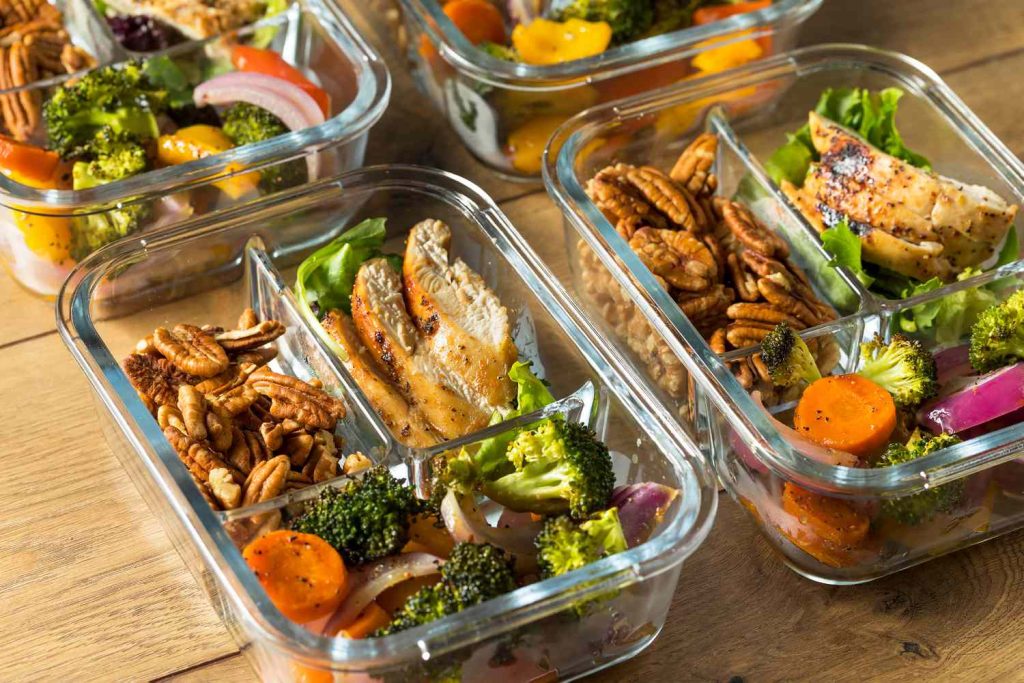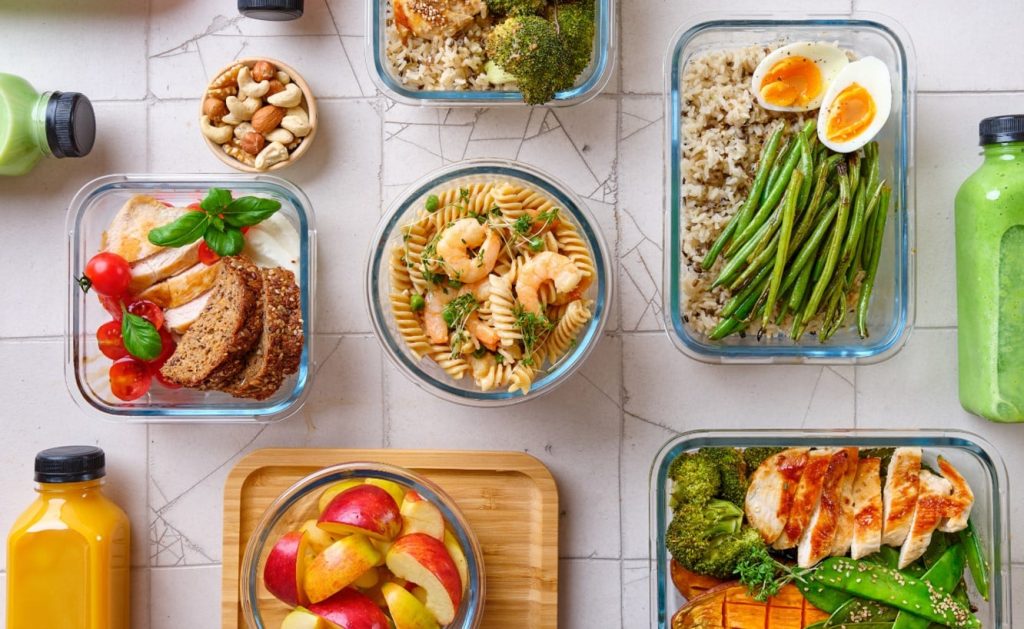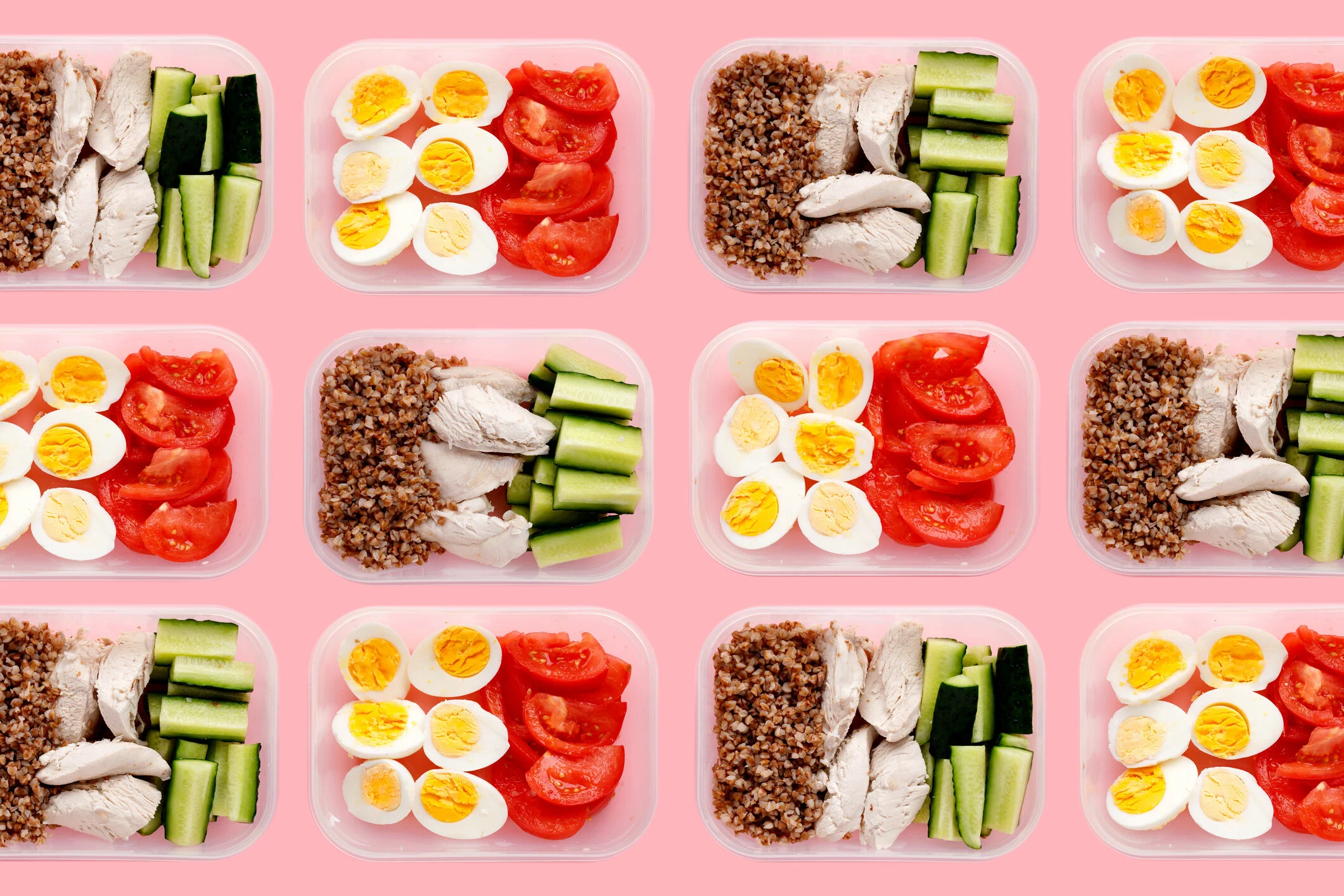Meal prepping is one of the most effective ways to save time, eat healthier, and reduce stress during a busy week. By preparing your meals in advance, you can avoid last-minute unhealthy choices, manage your portions, and ensure that your body gets the nutrients it needs. If you’re new to meal prepping, the process may seem daunting, but with a little planning and organization, it can become a simple and rewarding habit. Here’s a step-by-step guide on how to meal prep for the week.
1. Plan Your Meals

The first step to successful meal prepping is planning. Take some time to decide what you want to eat for breakfast, lunch, dinner, and snacks. Consider your nutritional needs, personal preferences, and any dietary restrictions. It’s helpful to start with simple recipes that use similar ingredients to reduce waste and save money. For instance, grilled chicken, roasted vegetables, and brown rice can be mixed and matched throughout the week.
Creating a meal plan also allows you to make a grocery list so you can shop efficiently. Include everything you’ll need for the week, including proteins, vegetables, fruits, grains, and healthy fats. This step ensures that you won’t have to make multiple trips to the store.
2. Choose the Right Containers
Investing in good-quality containers is crucial for meal prepping. Look for containers that are microwave-safe, dishwasher-safe, and airtight to keep your food fresh. Glass containers are durable and do not retain odors, while BPA-free plastic containers are lightweight and convenient. Having a variety of sizes can help you store different types of meals, from salads to soups.
Labeling containers with the contents and date can also help you stay organized and prevent food from spoiling.
3. Cook in Batches
Batch cooking is the heart of meal prepping. Set aside a few hours on a weekend or a day off to cook larger quantities of food. Start with proteins like chicken, beef, tofu, or fish, then move on to grains such as rice, quinoa, or pasta. Roast, steam, or sauté vegetables in bulk so they’re ready to use throughout the week.
Using sheet pans, slow cookers, or Instant Pots can make batch cooking easier. For example, roasting a tray of mixed vegetables while cooking a batch of quinoa allows you to prepare multiple meals simultaneously.
4. Portion Your Meals

After cooking, it’s time to portion your meals. Divide your food into individual containers, making sure each portion includes a balance of protein, carbohydrates, and vegetables. Proper portioning helps prevent overeating and makes grabbing a healthy meal quick and convenient.
You can also prepare snack packs with nuts, fruits, or cut-up vegetables for a convenient and nutritious boost between meals.
5. Store Your Meals Properly
How you store your meals affects their freshness and taste. Most meals can be stored in the fridge for up to four days. If you’re prepping for the entire week, consider freezing some portions to prevent spoilage. Make sure to cool cooked food before refrigerating or freezing, and use airtight containers to maintain quality.
For meals that include sauces or dressings, store them separately to prevent sogginess.
6. Reheat and Enjoy
Reheating your prepped meals is easy, but it’s important to do it safely. Microwave your meals until they’re steaming hot, or reheat on the stovetop with a splash of water or broth to retain moisture. Adding fresh herbs or a squeeze of lemon before serving can bring back flavors lost during storage.
7. Tips for Success
- Start small: If you’re new to meal prepping, begin with just lunches or dinners, then expand as you get comfortable.
- Be flexible: Life is unpredictable, so allow for some flexibility in your plan. Swap meals or adjust portions as needed.
- Use versatile ingredients: Ingredients like chicken, eggs, rice, and frozen vegetables can be used in multiple meals to make prepping easier.
- Keep it interesting: Rotate recipes each week to prevent boredom and keep your meals exciting.
Conclusion
Meal prepping doesn’t have to be complicated or time-consuming. With planning, the right containers, and a little batch cooking, you can simplify your week, eat healthier, and save money. By making meal prep a habit, you’ll enjoy the convenience of ready-to-eat meals and reduce the stress of daily cooking. Start small, stay organized, and gradually build a system that works for your lifestyle—your future self will thank you.

